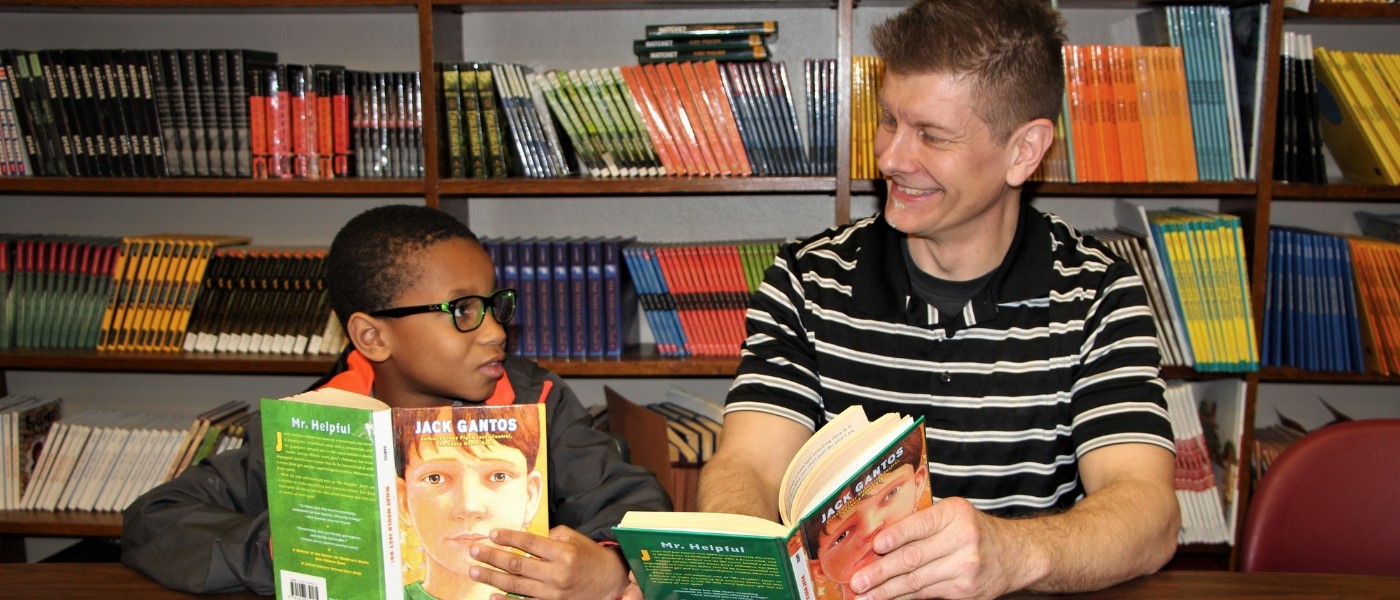Extreme poverty, the unexpected loss of a loved one, neighborhood violence, household dysfunction. These are just a few of the traumatic circumstances and events that are all too familiar for many of the children and families served through PEP Day Treatment Centers. Experiences like these breed fear, distrust and anger.
Literature can serve as a healthy outlet for those feelings by allowing readers to confront emotional and behavioral issues that might be too difficult to address more directly. With generous support from many local foundations, PEP developed its own intervention-based bibliotherapy curriculum to help students explore these feelings through a once-removed viewpoint.
Bibliotherapy can help students of all ages try new ways of thinking, behaving and perceiving the world through the safety of a character. Famed characters like Brian Robeson in “Hatchet,” who suffers great loss while struggling to keep himself safe. Or even the young boy in “Alexander and the Terrible, Horrible, No Good, Very Bad Day” who wakes up with gum in his hair, struggles with siblings, friends, parents and teachers.
“The students will be reading about a topic that directly correlates with the grief they’re carrying,” said Dr. Felicia Fago, PEP’s retired educational services director who was instrumental in implementing the program. “It offers catharsis in a safe environment. It can be an awakening – even for the kids who are silently processing.”
Over the last decade, PEP produced more than 200 lesson guides for use in the classroom, each of which has been carefully vetted by the agency’s clinical team to identify potential triggers. PEP classrooms are staffed by teams of experienced educators and mental health professionals, allowing students to explore these books through a social-emotional and academic lens. Reluctant readers often evolve into eager readers.
“I’ve had kids over the years who haven’t really wanted to talk about their emotions or feelings,” said Ty Morgan, an associate teacher-counselor at PEP Greenview. “With bibliotherapy, all of a sudden they’re talking about characters in a story and will make that jump and say, ‘This is exactly like what I’m going through.’”
There are five basic elements to any story: characters, setting, plot, conflict and resolution. For kids at PEP, consider adding one more: hope.
“It shows these kids we’re paying attention – paying attention to their fears, their concerns and their dreams,” said Lori Murphy, a teacher-counselor at PEP Phoenix. “It shows them that we are here to help.”
